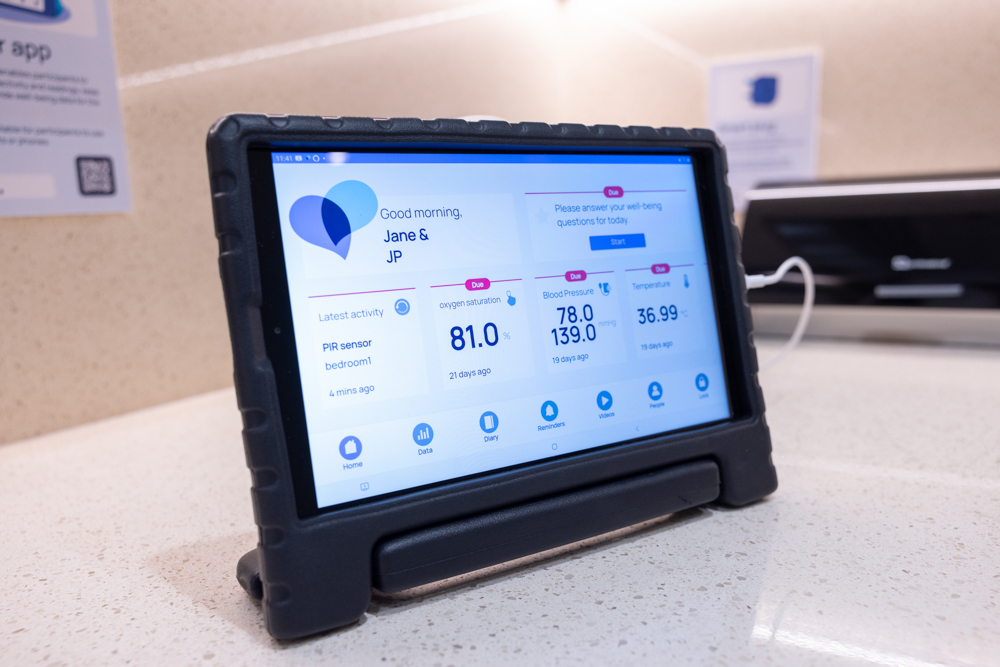MinderCare: An NHS service helping people with dementia live independently for longer
We are funding and supporting MinderCare through our partnership with the UK Dementia Research Institute. This NHS service offers remote, at-home monitoring to improve care for people with dementia and help them to live independently at home for longer.

Overview
MinderCare uses a network of at-home sensors to understand how someone with dementia is coping in their daily routine. The collected data allows a dedicated team of healthcare professionals to provide tailored advice and treatments, while allowing individuals to live well at home for as long as possible and provide much-needed reassurance to families and carers.
This new service is over 10 years in the making and has been launched by Imperial College Healthcare NHS Trust and developed by researchers at the UK Dementia Research Institute Centre for Care Research & Technology at Imperial College London, with funding and support from us.
How MinderCare works
The person with dementia is provided with a network of smart home devices which are connected via the internet. These include door, appliance, and movement sensors to capture trends in movement around the home.
A bed mat sensor, which sits under the mattress, is also used to track sleep disturbances, detect movement and measure breathing and heart rates. None of the devices record sound or video, ensuring the individual’s privacy is maintained.
Data from these devices are sent to the Minder platform – a dedicated and secure digital platform. The data is reviewed daily by the MinderCare monitoring team, allowing them to check if the individual is safe at home and identify any patterns that might indicate a health or care need.
Examples of changes that can be identified include:
- sleep disturbances
- changes in heart and respiratory rates that can indicate infections
- lack of movement which could indicate a fall
- unusual movement, such as leaving the house late at night.
MinderCare medical teams maintain regular contact with both the individual and their family, ensuring they are involved in the process and aware of anything concerning that the data may show. The data is also shared with the individual’s GP and community health and social care teams for seamless support and coordination of care.
Impact of MinderCare
People with dementia are often admitted to the hospital following a fall or due to a serious infection. Respiratory and urinary tract infections are more prevalent in older adults and can lead to severe health complications in those with dementia, who may not recognise the early symptoms or be aware of the infection.
By detecting falls, unusual movement patterns, and subtle indicators of early infection, MinderCare’s approach allows individuals to receive rapid care, could prevent hospital admissions, and allows those living with dementia to remain in the comfort of their own homes for longer. The service can also alleviate pressure from families and carers and provide much-needed reassurance that their loved ones are safe in their homes.
How MinderCare is rolling out
The Imperial College Healthcare NHS Trust aim to enrol 100 patients by September 2025, as part of a study to better understand the feasibility of offering the service to people living with dementia in North West London.
Contact us
In submitting your personal data via this form, you consent to being contacted via the details provided so that your enquiry can be responded to. If you would like your data to be removed, please email dataprivacy@lifearc.org.
Please see our Privacy Policy in relation to the personal data you submit to us through this page.
This site is protected by reCAPTCHA and the Google privacy policy and terms apply.


